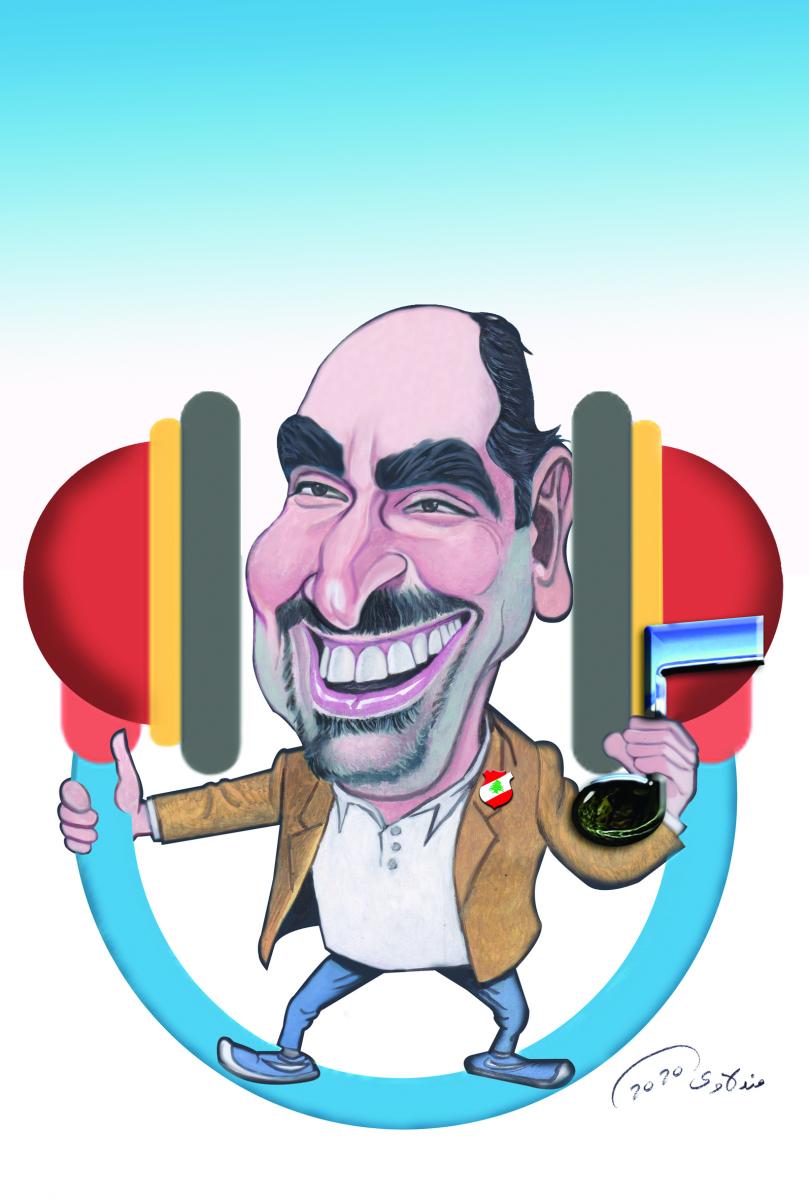
A Family of Composers
Oussama Rahbani was born on December 9, 1965 in Lebanon to Terez Abou Jouda and Mansour Rahbani. His father, Mansour, was part of the famous Rahbani brothers, which included Assi and Elias. These three talented brothers were music composers, poets and philosophers who helped shape the modern Lebanese music genre. Mansour and Assi were musical partners who collaborated on a number of orchestras, projects and songs. The Rahbani brothers also famously took traditional Lebanese and Levantine musical sounds and reimagined it into a new sound, which became known as “Rahbanian” music. Assi would eventually fall in love with Fairuz, an up in coming Lebanese singer. After their marriage, Fairuz joined the brothers who helped her become one of, if not, the most famous Arab singers of the classical era. Together, the Rahbanis and Fairuz put Lebanon on the Arab musical map, which up until that point was dominated by Egyptian singers and composers. Undoubtedly, having a Rahbani as a father and Fairuz as an aunt would eventually lead Oussama and his siblings into a career in music.
A Musical Upbringing
Oussama, along with his own brothers, Ghadi and Marwan, were trained in the musical arts from a young age. Like many children, the brothers were given piano lessons, however for this family learning piano wasn’t just an activity to stimulate the brain or something that would look good on university applications. To the Rahbanis, music was an expression of one’s self, music told stories and gave them a unique identity that many tried to emulate. These piano lessons would become a gateway for Oussama’s long and ongoing love affar with music and composition. It was during his formative years that Oussama, along with his brothers and cousin Ziad, started developing their own unique musical styles that differed from that of their father’s and uncle’s, as they became influenced with classical Arabic and Western music as well other styles such as jazz and the blues. Having come from a well off family, Oussama would also attend some of the most prestigious schools in Lebanon, such as the Collège des Frères Maristes Champville and the Collège des Apôtres. He then obtained his bachelor’s degree at the Lebanese University and then studied music at Berklee College of Music in Boston, Massachussets.
Baby Steps and Hello Beirut
Oussama started his musical career as a youth choir master at St. Elie’s Church in Antelias from 1978 to 1980. His big break would come in 1982 when he joined a musical troupe led by his father Mansour and his uncle Assi. Eventually, Oussama and his own brothers would form their own musical group, carrying over their parents’ legacy. He, along with Marwan and Ghadi would perform their own theatrical show called Hello Beirut, which toured across the Arab region from 1982 to 1986. Oussama then founded his own band called the Jazz Gate, which performed at the 1987 Byblos International Festival. This wouldn’t be the last time Oussama performed at Byblos Festival as he would become a mainstay at the annual jamboree.
The 90s, Oussama’s First Album and TV Series Compusor
The 1990s proved to be a fruitful decade for Oussama as he branched out his talents to other media outlets. For instance, throughout the early 90s, Oussama composed songs for a number of Lebanese children’s TV shows and he became a composer for many theatre artists such as dance groups and other performers. He would also go on to compose music for various plays and musicals, and would even act in a play entitled Al Inqilab (The Coup), which was produced by Marwan and Ghadi Rahbani. 1997 was a milestone year for Oussama as that was when he released his first solo album Al Nizam El Jedid (The New System). One year later, he composed music for a popular TV series called Al Wasaj, by then mass audiences started recognising Oussama for his own work separate from that of his siblings, father and uncles.
Star Academy and Mentoring Rising Stars
From 2004 to 2007, Oussama joined the critically acclaimed Star Academy singing competition working as a mentor for contestants who made it through the initial qualifying stages. During these three years, he mentored and trained many rising starlets who eventually made it big in the region.
Nevertheless, he wasn’t just a mentor to those who participated in the singing contest as many of his most famous trainees never participated in Star Academy. For instance, he worked extensively with acclaimed singer Carole Samaha. He has also coached and worked with singers who participated in other competitions, for instance he has recently been mentoring Lebanese singer Hiba Tawaji who first rose to noteriety after taking part in The Voice in 2015.
Political Messages and Art
Oussama is a politically well versed individual who hasn’t shied away from placing political messages in his works. This can be a risk since that could place him at odds against the political leadership of Lebanon, but he feels that the greivances of society needs to be reflected in his art. One of his most profound political compositions was Lezem Nighayer El Nezam (We Need to Change the System) which was sung by Carole Samaha. This song criticised the unjust political system in Lebanon which caused many to live in a constant state of poverty and unemployment. Another one of his compositions Belidiyat Beirut (Beirut Muncipalities) criticises the growing curruption of Lebanese politicians and the dwindling freedoms Lebanese citizens are enduring.
What Lies Next For Oussama?
Oussama is still an integral part of the Byblos and Baalbeck festivals, respectively. He is set to take part in this year’s edition of the Baalbeck Festival that will be live streamed online due to the current coronavirus pandemic. Furthermore, given the current political situation in Lebanon, he will surely delivering some strong messages critical of the current system.






